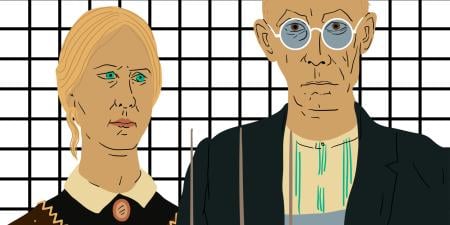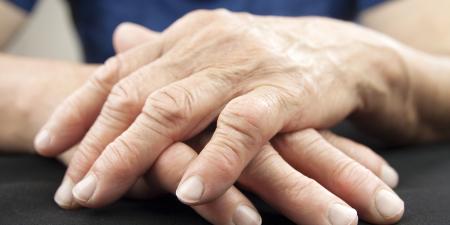After graduating in 2000 from Seth Gordhandas Sunderdas Medical College, in Mumbai, India, I went on to complete a psychiatry residency in that city. After my marriage, I came to the U.S., completed the USMLE, and matched to a residency program in Kansas City. Thereafter, I moved to Detroit to finish my general psychiatry residency training and completed a child psychiatry fellowship at University of Michigan.
When I accepted a residency on a J-1 visa, I knew that someday I would be working in a rural community, but it seemed pretty far away at that time. There were several positions available across the country that offered the required waiver to international medical graduates (IMGs) on this particular visa so they could work and remain in the U.S. I met IMG physicians at every place I interviewed.
I accepted a position in a community mental health clinic in Huntington, West Virginia. Huntington, the second largest city in the state, is located along the Ohio river. People of Caucasian descent make up nearly 90 percent of Huntington’s population of 50,000. The city is part of a larger tri-state area, with several smaller towns on either side of its borders with Ohio and Kentucky. Once a week, I travel about 20 miles to a satellite clinic in another county, which has a population of 22,000, 99 percent of whom are white. My first trip to the clinic was quite unnerving; the hairpin bends and steep uphill climbs made me carsick. Since it was unfamiliar to me, I had carried my GPS, but there was no satellite signal for either the GPS or my cell phone for most of the trip. To this day, I still call my husband every Thursday morning to let him know I have reached the clinic safely.
During the interview phase, I heard about the Tri-State India Association, and I managed to get in touch with its president. From speaking with her, I found out there were about a 100-150 families in the area of Indian origin, and that the association had monthly get-togethers. With a 3-year-old daughter, it was important for us to be able to interact with other families of Indian origin to maintain the cultural connection and feel part of a community. This was a big consideration in our decision making.
When I lived in Detroit, I had a variety of options: I could pick the kind of Hindu temple I felt like visiting on a particular occasion, the type of regional Indian cuisine I felt like on a particular day, the kind of Indian store I wanted to shop at, and the Indian-language film I wanted to watch on the big screen.
Huntington was different; there was one Indian restaurant, the nearest Indian store was an hour away, the Hindu temple was 2 hours away, and the nearest place to watch an Indian movie on the big screen, at least 3 hours away. The first time I went to the local Wal-Mart, I was convinced everyone was staring at me. I remember being startled by the feeling, because, in the 7 years I had resided in the U.S., this was the first time I had ever felt like an immigrant. The feeling gradually dissipated over the next few months. The other struggle we faced was my husband’s finding a job. He had left his job as a professor in pediatric dentistry and outreach coordinator at the university in Detroit, so we could all be together. Due to his immigration status, he had to be employed and could not start his own practice. Even though there was a desperate need for pediatric dentists in the area, he faced resistance, partly due to being unknown in the community and partly due to the community’s reluctance to get involved in the unfamiliar immigration process. It took more than a year for him to get started in the community. We came to realize how hard it could be to find two careers in a small city.
Throughout residency, one always hears the adage “Residency does not truly prepare you for real-life practice.” How true it is! Though my residency and fellowship training gave me a great foundation and honed my professional skills, I was in no way prepared for what was in store for me. I took a job as a staff child psychiatrist at Prestera Center for Mental Health Services, Inc., working 40 hours a week in a clinic whose patients were mostly uninsured and underinsured. Our health center provides mental health and addiction services in eight counties in the southwestern part of the state, including crisis units, short-term and long-term residential addiction centers, and outreach services to the homeless. We also have in-home therapy, respite and day-treatment programs, and school-based services for children and families. I was very fortunate to have another child psychiatrist at the same office; she has been a valuable mentor who has helped me navigate the systems of care in the state and region.
Given the setting I was working in, I anticipated what I imagined to be the worst, but the extent of psychopathology I came across far exceeded those expectations: parents with severe mental illnesses, physical abuse, sexual abuse, incest, neglect, trauma, illegal drug use, violence, crime, illiteracy, misuse of social security, even parents’ stealing and selling their children’s medications. Few families were able to provide the nurturing and care that children need; they were living from moment to moment, surviving one day at a time, not knowing what would happen in their lives the next day. I often had trouble managing my reactions to some of the stories I heard. It helped to have other people to work with, to vent and exchange ideas. I came to terms with the fact that I could only help my patients to the extent that they would allow me and with the limited resources I had. I often talked to colleagues who had accepted similar jobs in other parts of the country and was somewhat relieved to find that I was not alone in this.
In a community the size of Huntington, maintaining confidentiality is often an issue. While it is fairly common to have siblings as patients, I had several patients from the same class or school. Kids have run up to me in a grocery store, to greet me as their doctor. Sometimes, they ask me about their friends who also see me. Some of the teenagers I see end up dating each other. Each of these situations raises concerns of confidentiality one is less likely to find in large urban settings.
It was gratifying to me though, that I immediately felt accepted by my patients as their doctor. Looking back in their charts, I discovered that many of them had previously had IMGs as their psychiatrists, so it was something they were already used to. The parents were genuinely grateful to have someone who would take care of their children. My family and I were accepted by the Indian community with open arms. People often checked in on us and supported us through difficult times. We are often asked if we plan to stay here. If we move, it will be for better career opportunities or for our daughter, who we would like to experience greater exposure to our culture. Besides the convenience and the cost of living in a small town, the attachments we have formed here in the short period are starting to grow on us.
For now this is home.



